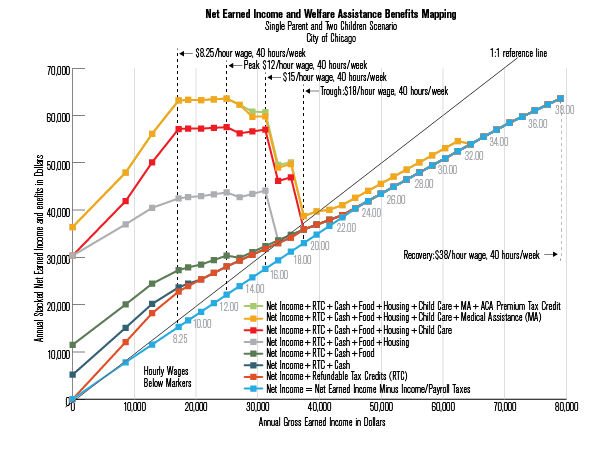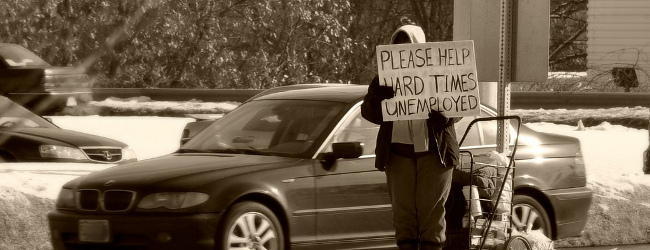There is a long grumble on the left of British politics that whilst we are told rich need less financial burdens to be enticed into working, the poor need more financial burdens to achieve the same effect.
It is not an unfair characterisation, at least of some views on the right. On Monday health minister Jeremy Hunt was caught out backing cuts to tax credits using this very logic, saying the cuts were “a very important cultural signal”:
“My wife is Chinese. We want this to be one of the most successful countries in the world in 20, 30, 40 years’ time. There’s a pretty difficult question that we have to answer, which is essentially: are we going to be a country which is prepared to work hard in the way that Asian economies are prepared to work hard, in the way that Americans are prepared to work hard? And that is about creating a culture where work is at the heart of our success.”
Proponents of this view often invoke the so-called “welfare trap” or “poverty trap”. They claim that the unemployed are discouraged from getting into work because the money they receive on benefits is greater than the money they would receive in any low-level job, so it is rational to remain a shirker.
A more nuanced version of this involves crunching numbers to take account of benefits, earned income and taxes to work out how much money a person walks away with.
Since some benefits are revoked once a person is making a given amount of money, this can create what is known as a “welfare cliff”, in which one’s net income remains flat or even declines as they advance up the pay scale. An example of this effect can be found in the City of Chicago:
 Source: Illinois Policy Institute
Source: Illinois Policy Institute
One should note that this does not disincentivise work, but it does incentivise people to remain on benefits and refuse promotions with greater pay, since they are walking away with less money.
But in truth it may be more complicated. A study from the rightwing American think tank the Cato Institute published in 2013 was pooh-poohed by the journalist Josh Barro in a piece for Business Insider, where he argued that the qualification process for benefits was more complex than the researchers had assumed, and thus work was more attractive to more people than the researchers had suggested.
Even so, he did said that poverty traps exist, and could only be mitigated by phasing out benefits (so as you earn more your benefits shrink) or reducing the benefits. How common these traps are is contested by both sides.
But all of this considers merely the economic and not the psychological effects of having a job. As Robert Nielsen, an economics blogger, argued in an award-winning essay on welfare traps:
“A job is not simply a way to make money, it is also part of an individual’s identity. Unemployed workers suffer psychological damage from their lack of a job. They suffer from a higher rate of mental illness than those working and gain a boost in mental wellness when re-employed.”
This is a point that Hunt picked up on in his remarks at the Tory conference, where he said that how a person earns their money matters: “It matters if you are earning that yourself, because if you are earning it yourself you are independent and that is the first step towards self-respect.”
Of course, this would suggest that those on benefits already have a significant incentive to find paid work. But no doubt the debate will rumble on regardless.
Image Credit – Unemployed, January 2010 by James Lee
